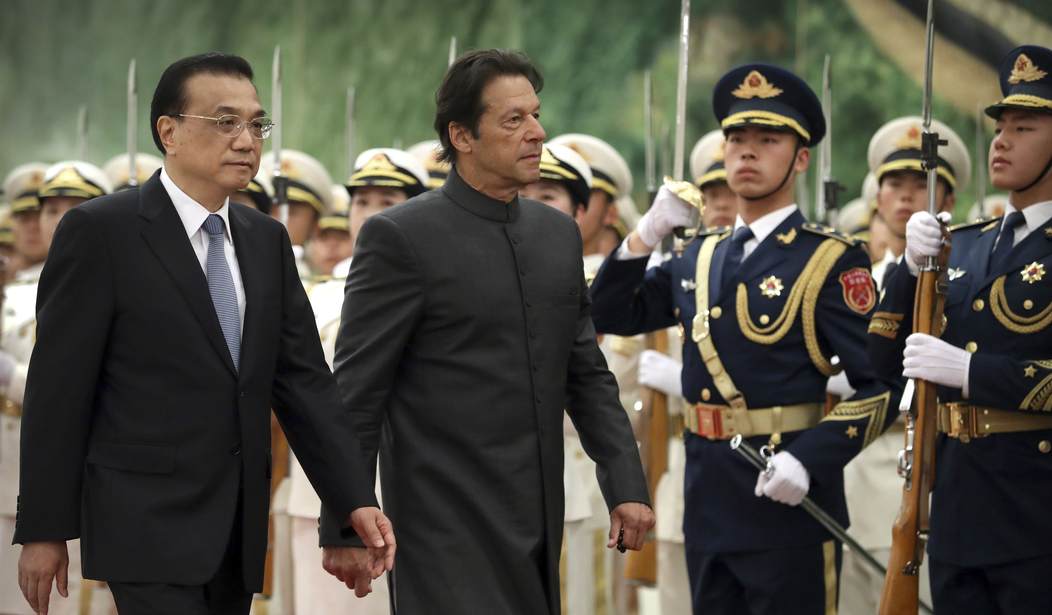Pakistan’s eighth caretaker prime minister was sworn into office on August 14 to oversee elections. But with one of the country’s most popular candidates imprisoned just days before, the ceremony had the feel of kabuki theater performed on the lip of a volcano.
Pakistan has been in an acute political crisis since the military engineered the dismissal and three-year prison sentence of former Prime Minister Imran Khan, demonstrating yet again that the nation is a dysfunctional military dictatorship with only a patina of civilian rule. In July, the International Monetary Fund gave Pakistan its 20th bailout in 60 years. Islamabad’s abysmal record appears even worse when compared to that of Bangladesh, which split from Pakistan in 1971.
In 1971, Pakistan had among the fastest growing economies in the world and emerged from the split with nearly all of the combined counties' premier academic, industrial and cultural institutions. Its prime minister was brokering an historic rapprochement between American President Richard Nixon and China’s Mao Zedong, cementing ties to global powers. It had the full support of the West.
Bangladesh, by contrast, was a wreck. The Bhola Cyclone had wiped out 500,000 people and Pakistan’s military followed by slaughtering 3 million more. Eighty percent of the country’s remaining population lived in abject poverty, conditions that led Henry Kissinger, Nixon’s national security advisor, to call the country a “basket case,” a characterization he has since walked back.
In the 52 years since, the two countries’ positions in the world have swapped. Few nations are now as broken or frightening as Pakistan. Bristling with nuclear weapons, its inflation rate is nearly 30 percent and officials are quietly delaying elections for fear violence will spin out of control. For decades, military leaders encouraged Islamist extremists and pointed them toward India. Now, those same militants make parts of Pakistan all but ungovernable.
Recommended
Meanwhile, Bangladesh has among the most stable governments in Asia with the longest serving elected female leader in history. Unlike Pakistan, Dhaka never weaponized religious extremism for political ends. Fifty years ago, Bangladesh’s per capita income was about half of Pakistan’s. Now it is double – and widening rapidly. Bangladesh’s infant mortality rate is a third of Pakistan’s and its female literacy rate is 58 percent higher. Polio was long ago wiped out in Bangladesh while Pakistan remains one of its last redoubts.
Perhaps the most telling difference is their contrasting vulnerabilities to climate change. To this day, the 1970 Bhola Cyclone remains the single most devastating natural disaster in human history. And with nearly a quarter of the country less than seven feet above sea level, Bangladesh remains terribly at risk to rising sea levels.
But Bangladesh has been investing heavily in climate change resilience for years -- moving entire villages out of harm’s way. Pakistan, by contrast, was walloped by flooding in 2022 and is widely seen as among the least prepared in the world for the weather disasters to come.
The two countries bear striking cultural, religious and historical similarities. So what happened?
Part of the difference is political. Bangladesh has had a consistency of leadership that has created the conditions for sustained development. The 1975 assassination of the country's founding father, Sheikh Mujibur Rahman, spurred his daughter, Sheikha Hasina, to run for office. Her 15-year tenure as Prime Minister Sheikh Hasina’s hasseen spectacular economic growth and crucial investments in the country’s energy and road infrastructure.
Hasina also lavished attention on a garment industry that has powered an export boom that lifted tens of millions out of poverty, particularly women. Despite a smaller population, Bangladesh’s annual export earnings are now double Pakistan’s.
But another reason the two countries diverged so much is thatBangladesh was never saddled with an enervating rivalry with India, the region’s dominant player.
The anger generated among Pakistan’s elite by its loss to India of Kashmir during Partition in 1948 has slowly poisoned the country. Since independence in 1948, defense spending remains Pakistan's single largest budget item. It currently spends 4 percent of GDP on the military, as compared to 1.9 percent for Bangladesh. Pakistan's four largest businesses and industrial enterprises are organizations created and controlled by the armed forces.
Sustaining a massive security apparatus with limited resources requires sacrifice, which can lead to unrest. Pakistan has avoided revolution by spending beyond its means. Despite its chronically anemic economy, the average Pakistani household consumes more than the average Bangladeshi household, even as its gross capital formation as a percentage of GDP is only a fraction of Bangladesh’s.
One international economist neatly summed up Pakistan's predicament: "Pakistan is behaving like a lot of natural resource exporters behave - but without the natural resources. Instead of a middle-income or high-income consumption society, it’s a low-income consumption society - keeping its people barely treading water, with lots of help from external largesse."
The rapid rise of Bangladesh and the steady decline of Pakistan hold important lessons for U.S. policymakers. First, they should harbor no illusions that developing states dominated by the military will prove solvent. Second, states like Bangladesh that successfully manage political Islam are a safer bet than those that seek to exploit it, which Pakistan has done with groups like the Haqqani Network and others as a hedge against Indian power. And governments that deliver results for the voters, as has Bangladesh's, deserve support.

























Join the conversation as a VIP Member